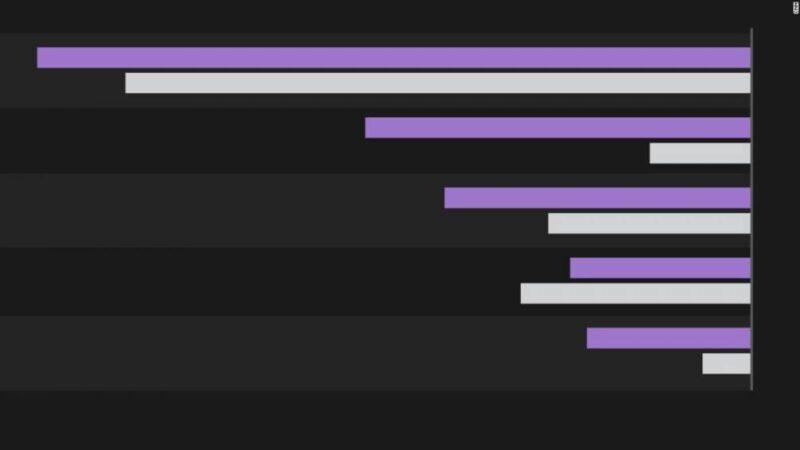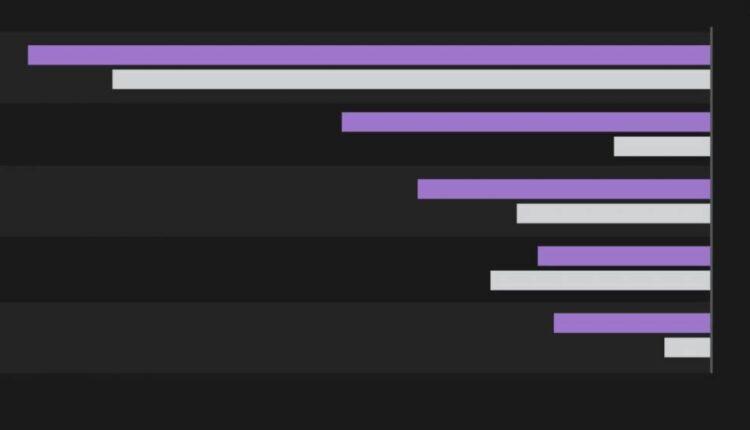New York (CNN Business)The pandemic has taken a heavy toll on women, ranging from job losses to childcare demands. It’s also hit women’s finances — especially when it comes to their retirement savings.
More from Financial Empowerment
Should you rent or buy a home? Ask yourself these 3 questions
How to get your kids started investing early
Do these 5 things if you want to improve your credit score
“The pandemic has wreaked havoc on women and it’s really not their fault,” said Shelly-Ann Eweka, a senior director of financial planning at TIAA.
Since last February, more than 2.3 million women have left the workforce, according to data from the Bureau of Labor Statistics. A stark difference from before the pandemic when women outnumbered men and consisted of more than 50% of the US labor force.
But even then, women were stashing away less than men for retirement. And now the pandemic has only exacerbated that savings gap. The problem starts with the fact that, on average, men still earn more than women, according to Lule Demmissie, president of Ally invest, the digital brokerage and wealth management arm of Ally Financial. Read More”There’s the earnings gap compounding in retirement. If you’re earning less on the dollar, then you’re going to have less to put in,” she said.

These 5 charts show the pandemic's devastating effect on working womenIn fact, women receive 80% of the retirement income that men of the same age do, according to a 2020 report by the National Institute on Retirement Security. “The pandemic is really setting women back as far as being prepared for retirement. Retirements are down the stream of what happens in the workplace,” said Dan Doonan, executive director of the NIRS. “So you have job losses that can throw you off track, and the next job you find might not be the same quality.”Women also face a number of other hurdles throughout their lifetime that drastically impact their retirement funds, including longer life spans and long-term care expenses that can result in higher health care costs down the line. Here’s what women can do to try and catch up on retirement savings.
Start now
Focus your attention on what you can control when it comes to managing your money. How much you spend, your cash flow and your financial goals are a few examples of this. Utilizing financial tools like calculators can be a great way to assess your retirement costs and how much you’ll need to save to afford those expenses”Even those who aren’t close to retirement need to be thinking forward,” Eweka said. “If you’re planning on having assets and income to last a lifetime, you need to start thinking about that now.”
Plan to downsize sooner

How to figure out where all your money is goingDownsizing your living expenses early can help you ramp up your savings and set you down the right path for retirement, according to Eweka. Consider moving into a smaller home, getting an apartment with a roommate or limiting your car ownership to one vehicle. “As soon as the kids are out of the house, go ahead and downsize, don’t wait,” she said.
Consider working longer
Women generally live longer than men, which means they’ll need to have more saved for retirement. Working longer can be a great way to earn money without raiding retirement savings. “Plan on working as long as possible to make up for some of the shortfalls, or some of the years that you missed in the job market,” Eweka said. This can also help to give your Social Security benefits a boost. If you continue working, you can delay your Social Security benefits up until the age of 70. By doing this, you’re eligible for a benefits increase by a certain percentage each month you delay your benefits past your full retirement age.
Work with a financial professional
Financial planners can help with managing your money, developing your savings and building a secure financial future. Start by checking if any financial advisory services are offered through your employer. You can also work with someone individually or with a financial service, such as a roboadvisor. Whatever you choose, Eweka advises you ensure you’re understanding what’s being done with your finances and how you can make better decisions to benefit your financial well-being.
Take advantage of catch-up contributions
While most retirement accounts have federal limits on how much you can contribute, catch-up contributions allow workers over the age of 50 to add even more money to their 401(k) or other retirement accounts like IRAs. For 2021, workers 50 and over can contribute an additional $1,000 to their IRAs or $6,500 to their 401(k)s.
Don’t avoid risk
Women tend to be more conservative investors and are less likely to take on risk in favor of generating higher returns, Demmissie said. That will cost them in retirement. “If you have a very conservative posture in investing at a young age, you lose out on that compounded effect of a retirement nest egg at the end,” she said.

How to start investing in stocks with little or no experience
On the flip side, Demmissie said women are more likely to stick with their investments through market ups and downs. With that, women should consider allocating a portion of their savings to riskier asset classes such as large-cap and international stocks. By diversifying your portfolio in this way, you can potentially improve your performance and reap more lifetime income when you retire.
Source: edition.cnn.com

